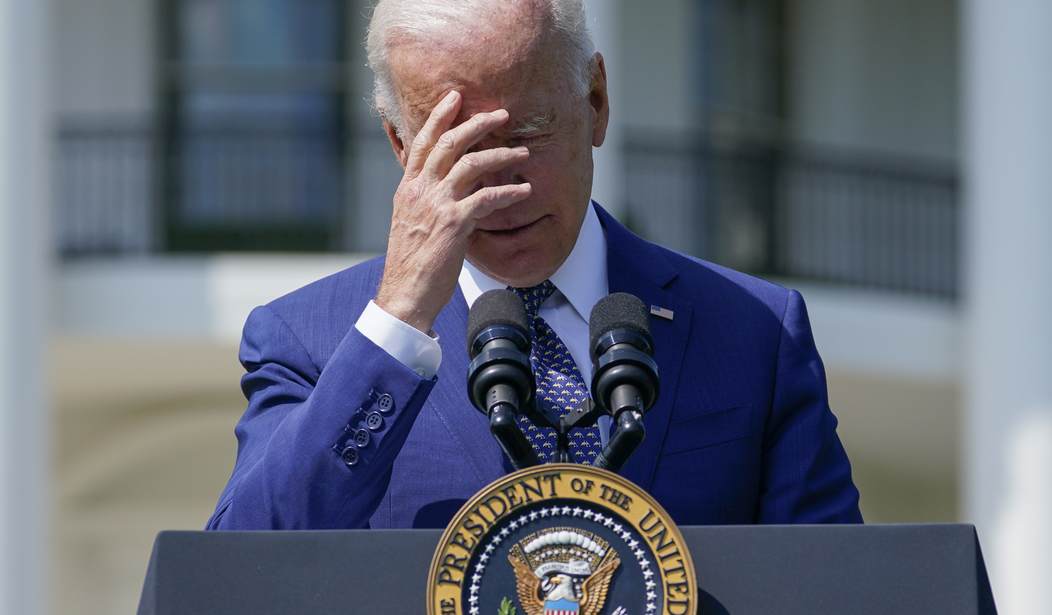Now that Kabul has fallen, and after a few more days of the scorekeeping and blame apportionment Biden just engaged in this afternoon, there’s some space to get serious as a nation about the risk calculation we’ve embraced in Afghanistan and beyond. As the fall season approaches, we can see ahead of us not just a sacred anniversary but, afterwards, a duty to take a cold, hard and humbled look at the consensus security posture of America.
As it relates to Afghanistan, we’re now reliant on a long-distance over-the-horizon strategy, drone-first, airstrike-only counterterrorism strategy. One in which potentially wide swaths of Afghanistan will be denied access areas for intelligence collection, in which there are long response times for our drones, and one dependent on Pakistani guarantee of overflight rights.
By the way, it may sound like a redundant phrase above – long distance over-the-horizon strategy – but it isn’t. Secretary of State Blinken referred twice to Yemen on the Sunday shows as a model for the over-the-horizon approach, but in each case that we’ve applied that model around the world, the United States had a presence in an immediately adjacent neighbor or a base somewhere closer than we will for Afghanistan.
What does over-the-horizon really mean? Proxy forces and airstrikes based on cultivated intelligence. In this case, we don’t have the proxies, and our planes are far enough away that responding to immediately actionable intelligence may not be possible.
Recognizing those constraints, there are two things that need to happen this fall:
1. We need specifics from the Biden administration. They need to explain under what circumstances they’ll act in Afghanistan to defend America. Is it only in circumstances of clear intelligence of advanced stage attack planning? If broader, where is the threshold for intervention?
2. We need the American people to understand, and react to, this risk calculus. Once we understand, explicitly, the post-withdrawal posture, are we comfortable with it? That’s the question we need to ask ourselves and come to an answer one way or the other. Informed consensus is necessary here given the gravity of the situation. Looking at the results of elite foreign policy, we can revel in the schadenfreude, or we can be appropriately alarmed and recognize that only sustained public attention can prevent eventual, additional catastrophe.
Recommended
Then, as we settle into the holidays, there’s a broader and still missing discussion. Yes, despite the avalanche of commentary there’s still a major piece to our national debate missing. Why, after 20 years, are we still stuck chasing terrorists around the globe? And why, when we leave our foot off the pedal (see Syria 2014), do we see attacks and destabilization around the world?
Because militant Islam gets a vote too. Large-scale physical terrorist safe havens beget international terrorist attacks. There is a militant ‘ism’ – an ideology – loose in the world, a movement that creates real world impact. And there are cracks in the nation-state system into which it works its way: capturing territory, rattling local populations, oppressing minorities, and then projecting its power around the world. Our staying in Afghanistan was a crude, necessary, and relatively successful attempt to prevent that particular haven from being filled with that particular ‘ism.’ That’s it. Nothing more grand or virtuous, nothing more sinister.
Stripped down to the core, that’s what the past 20 years have been. Chasing a militant movement around the world, preventing the worst of its violent impact from landing, fewer dead accountants in New York, hotel employees in Lahore, punk rock fans in France.
The United States does not have a grand plan to disrupt that dynamic, and as we’re rotated through phases, they fit along that same dynamic: countering terrorist propaganda is an attempt to prevent the spread of the ideology, development assistance in vulnerable countries an attempt to prevent new havens from opening up, and a reliance on proxy forces to disrupt the havens once all that fails.
We need to – have needed to – stare that dynamic in the face. That’s the macro-task for us after the Fall of 2021, once we’ve moved past our chosen defeat and calibrated our approach to the immediate terrorist threats that will again emanate from Afghanistan.
Our internal debate about Afghanistan, and our condemnation of this or the other politician changes nothing about that formula.

























Join the conversation as a VIP Member